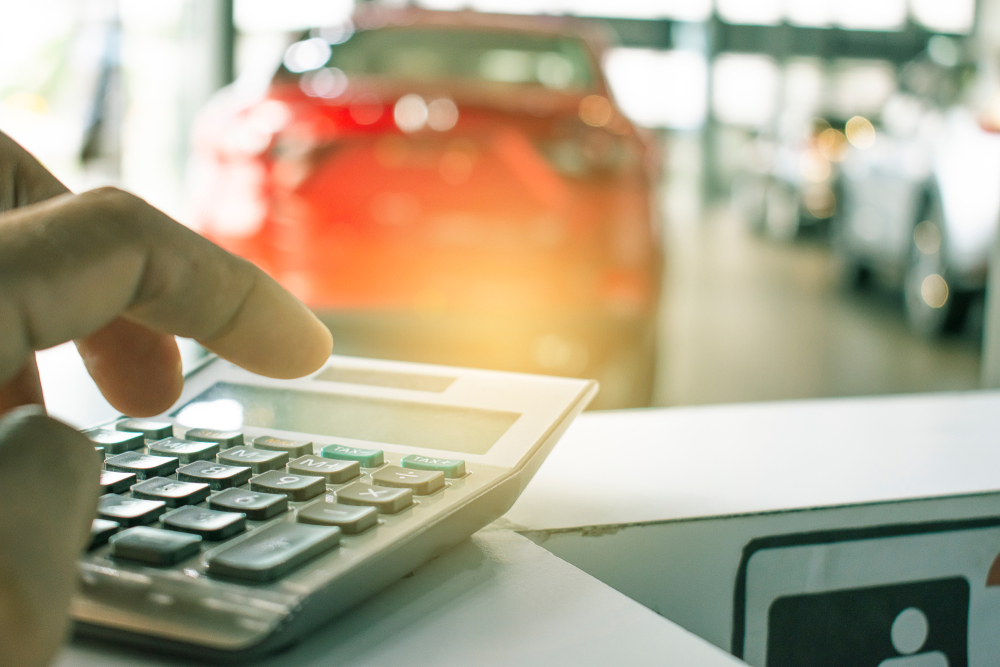I Can’t Afford My PCP Payments – Can I Cancel My Contract?

Few of us buy a new car any more. Instead we sign up to a PCP (Personal Contract Purchase) which entails us putting down a deposit then paying a monthly fee, typically for three years. At the end of the term we can pay a lump sum to keep the car (the balloon payment or Guaranteed Minimum Future Value), sign up for a new deal or just walk away.
But what if you want to hand the car back before the end of the contract? It’s not an unusual scenario and one that’s not as straightforward as you might think. When you sign up to a PCP you’re accepting a set of terms and conditions, which is why the first thing you must do before making a decision on whether or not to bail out early is to read up on what your liabilities are. Predictably, terms and conditions vary from one lender to another.
Your PCP deal will be based around the size of your deposit, the rate at which the car will depreciate, your monthly payments and therefore the equity that’s left in it when you hand back the vehicle. A car’s depreciation curve isn’t linear – it sheds value more slowly over time – but your payments are the same each month. As a result, if you hand your car back early, it’s lost a significant chunk of its value early on and you haven’t paid for that depreciation yet.
The first thing you need to do is ensure you really do have a Personal Contract Purchase deal in place, rather than PCH (Personal Contract Hire). They work in a similar way but walking away from PCH is much harder as the flexibility of a PCP isn’t designed in. If you have signed up to a PCP you’re able to cut things short, but as you’d expect, you’ll have to jump through one or two hoops.
When you cancel a PCP early you’re entering into a Voluntary Termination agreement, but to do so you must have repaid at least half of the money you’d have paid if the PCP ran for its full term; this figure includes any fees. If your payments come to less than this you’ll have to cough up enough to get to the 50% point – in which case you might be better off just hanging onto the car until you’ve repaid this much.
So if the total amount payable on your PCP over its full term is £30,000 and so far you’ve paid only £10,000, you’ll have to put another £5000 into the kitty before you can hand back the car and walk away. If you’ve paid back more than half of the total amount payable and you want to hand back the car early, you won’t get any money back. Bearing this in mind, if the car is worth more than what you still owe on it, you might be better off buying the car then selling it on – if you can afford to do so.
On this note, if your personal circumstances have changed and you’re in a better position financially than you were, you can pay off the finance, charges and final payment to purchase the car outright. There may be penalties to be paid for bringing everything forward, but if you’re keen to acquire the car you can do so; what you’ll need to pay will be detailed in your contract. What you can’t do is sell the car before it’s yours – but people do try to do it which is why we include such information in our vehicle history checks.
If your finances have gone the other way, and you’re no longer as flush as you were, a Voluntary Termination might be a good idea. If you’ve got past that half-way mark you can hand the car back and walk away; you’re better off doing this than getting into arrears with your payments, or your credit rating will be adversely affected.
Entering into a Voluntary Termination agreement won’t affect your credit score but it will be noted on your credit file. It won’t affect your ability to borrow in the future, but if you enter into a string of these agreements over time, some lenders might get nervous about lending you money in the future, as cutting short a PCP can lead to the lender losing out.
Many people who hand their car back early are doing so because they simply don’t use it enough to warrant the monthly expenditure. But for some people a change in financial circumstances is behind the decision. If this applies to you, what you don’t want to encounter is a hefty bill for handing back a car that’s not in good condition.
If you’ve exceeded the allowed mileage you’re liable to pay the cost per mile figure that was agreed when you signed up to your PCP. You might be chased for this but it depends on what’s owed and some finance companies are hotter on this than others. If you’ve covered far fewer miles than allowed, you won’t get any money back.
Where some people come unstuck is by handing back a car that’s not been looked after. Any damage to the trim, bodywork or paintwork will probably be charged for, but the rates are usually very fair – to the point that it’ll often cost you more to put things right if you get the work done yourself. Some finance companies are stricter than others, but if you do a google search you can soon establish what the typical guidelines are.
Richard Dredge
Use our FREE valuation tool below to check the current value of your car.



